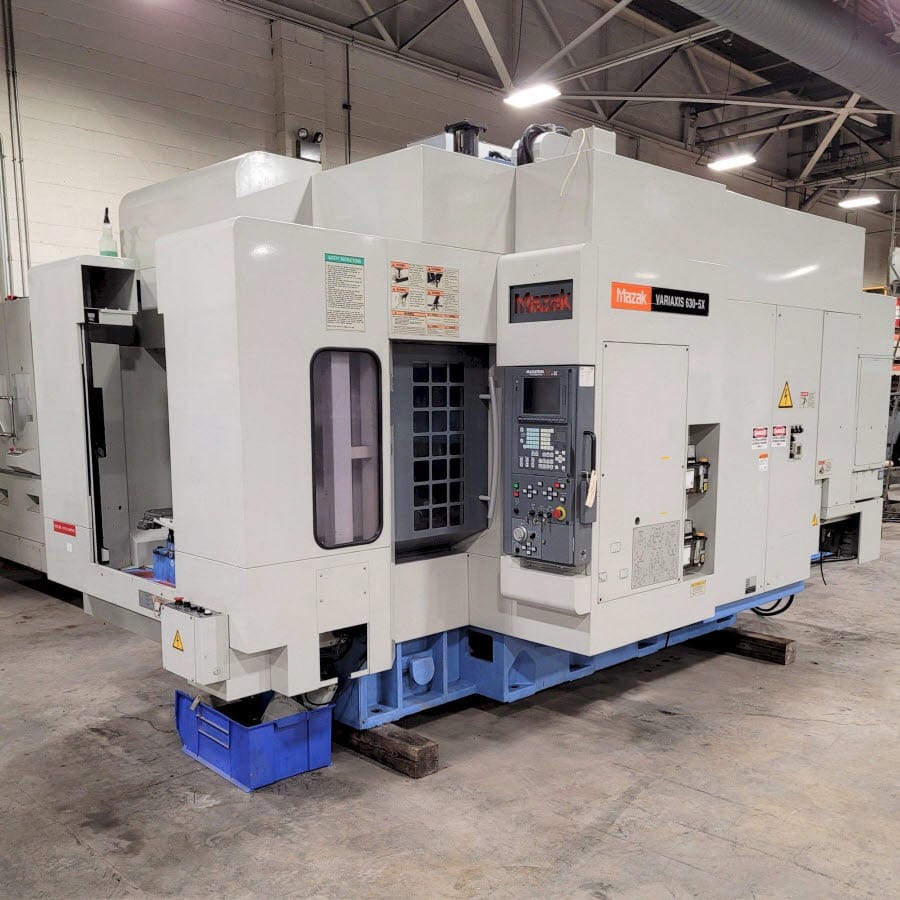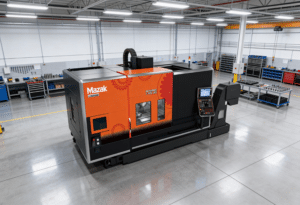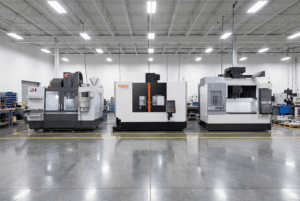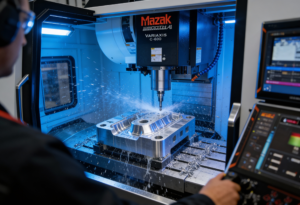Turkey Day is upon us, which hits a sweet spot with so much to give thanks for — and to look forward to. There is much for which to be thankful for those of us in the manufacturing sector, and especially to those of us in the CNC machine technology arena. We are grateful at Premier Equipment for the way used CNC machines have changed the face of many industries, from aerospace to automotive and beyond.
The Evolution and Impact of CNC Machine Technology
Since its inception in the 1950s CNC machine technology has come a long way. Originally a revolutionary concept in automated machining, it has become a mainstay of modern manufacturing. Computer programs run these machines, which have added greatly to precision speed and efficiency in production processes. CNC technology came along and moved away from how we had been doing things manually, which could be very time consuming and prone to human error.
CNC machines can do very complex things today with incredible accuracy. For example, in the aerospace field, CNC machines are applied to produce parts of engine and other parts of apparatus, where the accuracy counts the most.
Grand View Research’s report predicts that the global CNC machine market is expected to grow from USD 70.3 billion in 2019 to USD 128.4 billion by 2027, at a CAGR of 7.1% from 2020 to 2027.
The growth is a reflection of the rising dependence on CNC technology in different sectors.
Enhancing Precision and Efficiency
CNC machine technology is one of the most important contributions to the manufacturing processes because it has greatly improved the precision and efficiency of the manufacturing processes. These machines work around the clock without fatigue and allows reducing their production time and increase its output. CNC machines are also unmatched for the precision with which they can create parts, capable of within micrometers of tolerance, an accuracy which as impossible to do by hand.
For instance, in the automobile industry CNC machines are widely used in order to manufacture the engine blocks, cylinder heads and other essential parts. Such machines can guarantee high precision and repeatability, therefore 100% of the parts are strictly checked against strict quality standards to ensure safety and performance of the vehicles. Additionally, it is recognized that modern CNC technology has led to a rapid improvement of machining knowledge such as 5 axis machining and additive manufacturing. With these technologies, it’s now possible to produce complex geometries that weren’t doable using traditional manufacturing techniques.
Economic and Job Market Impact
The impact of CNC machine technology extends beyond the production floor to have significant economic and job market implications. The increased efficiency and productivity brought about by CNC machines have contributed to reduced production costs and higher quality products. This, in turn, has made U.S. manufacturers more competitive in the global market.
A study by the National Institute of Standards and Technology (NIST) highlighted that investments in advanced manufacturing technologies, including CNC machines, can lead to substantial economic benefits. For every dollar invested in these technologies, there is a potential return of up to $2.50 in economic output.
In terms of job creation, while it might seem counterintuitive that automated machines would lead to more jobs, the reality is that CNC technology has created a demand for skilled workers. Machinists, programmers, and maintenance technicians are just a few examples of the roles that have emerged or evolved due to CNC machine technology.
Environmental Benefits and Sustainability
Another aspect to be grateful for is the environmental benefits associated with CNC machine technology. Modern CNC machines are designed with energy efficiency in mind, reducing the carbon footprint of manufacturing processes. Additionally, the precision and minimal waste generated by these machines contribute to a more sustainable production environment.
In an era where sustainability is at the forefront of business strategies, CNC machines play a crucial role. For instance, in the aerospace industry, lightweight materials and complex geometries produced by CNC machines help in reducing fuel consumption and emissions in aircraft.
A report by the International Energy Agency (IEA) suggests that advanced manufacturing technologies, including CNC machines, can help reduce energy consumption in the manufacturing sector by up to 30%. This not only benefits the environment but also helps companies comply with increasingly stringent regulatory requirements.
Future Trends and Innovations
As we look to the future, there are several trends and innovations in CNC machine technology that we can be excited about. The integration of artificial intelligence (AI) and machine learning (ML) into CNC systems is one such development. These technologies enable real-time monitoring, predictive maintenance, and optimized machining processes.
Another significant trend is the adoption of Industry 4.0 principles, which involve the use of IoT (Internet of Things) devices and data analytics to create smart manufacturing environments. CNC machines are central to these smart factories, enabling seamless communication between different components of the production line.
In conclusion, as we gather around our tables this Thanksgiving, it is fitting to reflect on the profound impact of CNC machine technology on our industries. From enhancing precision and efficiency to contributing to economic growth and environmental sustainability, there is much to be thankful for.
At Premier Equipment, we are committed to staying at the forefront of these advancements, providing our readers with the latest insights and innovations in CNC machine technology. As we move forward into an increasingly complex and interconnected world, it is clear that the role of CNC machines will only continue to grow in importance.
So let us take a moment to appreciate these marvels of engineering and the countless ways they have improved our lives and our industries. Here’s to the CNC machine technology industry – a true cornerstone of modern manufacturing.



